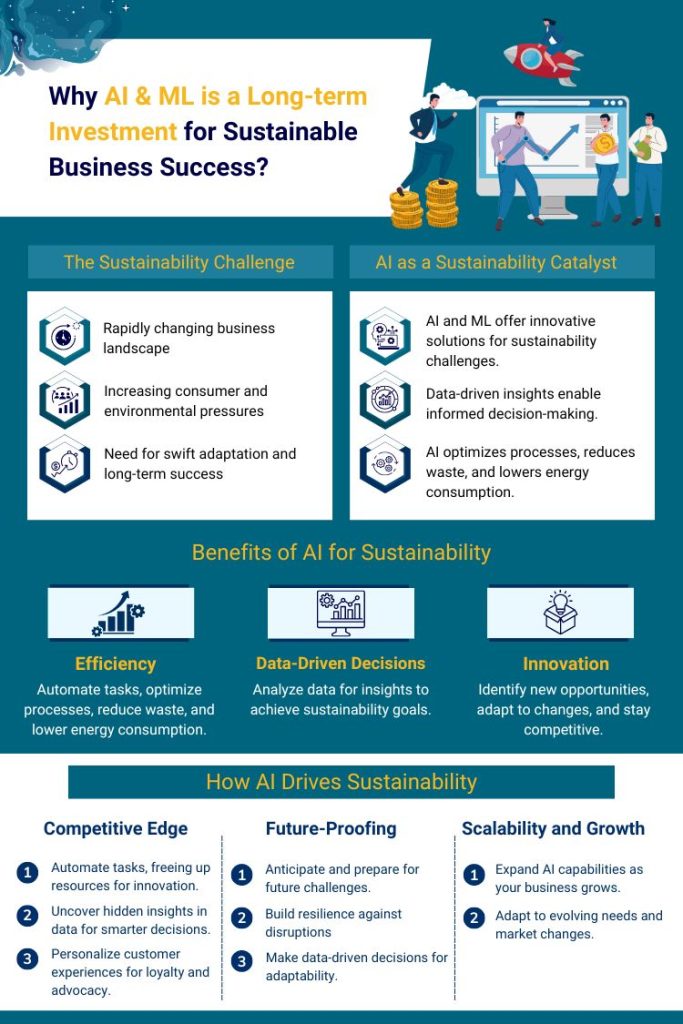- Application Services
- Next-Gen App Development
- Microsoft services
-
-
- Microsoft Fabric Consulting ServicesBuild advanced data pipelines to optimize Microsoft Fabric environment
- Microsoft Fabric Implementation ServiceGet powerful insights and simplify your data operations
- Microsoft BI SolutionsOrganize & analyze data for strategic advantage
- Real Time Intelligence Microsoft FabricTransform high-velocity data into instant, actionable insights
- Power BI Consulting ServicesCentralize, analyze, & visualize data for smarter decisions
-
- Microsoft Fabric Migration ServiceUnifying data for powerful analytics and AI-driven growth
- Microsoft Fabric Data Engineering ServicesEnd-to-end data engineering for large-scale data processing
- Microsoft Fabric Data ScienceExtract deep business insights and anticipate future trends
- Fabric Managed Services & SupportAchieve seamless operations, peak performance, and accelerated insights
-
-
- Mobile Application Development
- Modernization
-
-
- Integration ServicesGet seamless integration of various 3rd party services or existing systems for smooth operations of your mobile apps
- Cross PlatformsExcellent user experience and functionality of native apps with multi-platform compatibility
- Legacy System Modernization ServicesLegacy system modernization empowers organizations so that they can work more efficiently and intelligently.
-
-
- DevOps
- Software Testing
-
-
- AI Enabled TestingLeverage AI for testing the quality of your software products
- Functional TestingAutomated Functional Testing for improved quality & faster go-to-market
- STQC CertificationQuality, Excellence, and Innovation – The Hallmarks of Suma Soft
- Performance TestingEliminate performance bottlenecks of business-critical apps to run under expected, peak loads
-
- Scriptless Automation SolutionsFast, reliable, and easy testing with our “Ready-to-Deploy” automation framework
- Devops TestingOptimize testing in CI/CD pipelines for greater agility, efficiency, and quality
- AA CertificationEmpaneled Certifier for Account Aggregator (AA) Ecosystem
- ABDM Ecosystem Sandbox Exit ProcessWe Certify Your API for ABDM Sandbox Integration And Exit Process
-
-
- AI/ML Services
- AI/ML ServicesStay ahead of the curve with our advanced AI/ML capabilities
- Data Engineering ServicesDrive data-driven decision-making with our agile and customizable data engineering solutions
- Software Product Engineering ServicesTransform your concepts into market-leading products with our strategic product engineering approach
- VaniePartner with Us for Innovative Web App Solutions!
- Digital Public Infrastructure
- Account AggregatorGet certified using Daksh DEPA Validator to go live on the AA network.
- Ayushman Bharat Digital Mission (ABDM)Get certified using Daksh DEPA Validator to go live on the ABDM network.
- Beckn Protocol ImplementationImplement Beckn protocol to go live on India Stack network.
- ONDC CertificationGet certified using Daksh DEPA Validator to go live on the ONDC network.
- O Rickshaw Pune’s First ONDC Mobility App.
- Verifiable Credentials (VC)Securely issue digital credentials for trusted identity and data exchange.
- Unified QR CodeA single QR code to securely access and share information.
- e-KYC (Electronic Know Your Customer)Digitize and automate identity verification for customer onboarding.
- Data ExchangeSecure, consent-based data sharing between organizations and individuals.
- Consent ManagerEmpowering organizations to control data consent preferences.
- Business Services
- Business Process Management
-
-
- Healthcare BPO ServicesRound the clock coverage for most critical industry
- Logistics BPO & Supply Chain ManagementSmarter supply chains Built for today and ready for tomorrow
- Data Entry ServicesEnsure the accuracy and security of your data with Suma Soft
- Underwriting support servicesStreamline underwriting processes , increase accuracy, reduce risk with expert support services.
- Finance and Accounting ManagementImproving Account Payable and Receivables Through Artificial Intelligence
-
- Logistics BPO ServiceOptimize logistics with efficient operations, reduced costs, and our improved visibility.
- Customer Support ServicesSmart use of technology makes all the difference in CX
- REIT Management ServicesProductivity for You. Transparency for Your Investor
- OCR Outsourcing ServicesAchieve faster, accurate and reliable data capture with OCR outsourcing solutions.
- Claims ManagementState-of-the-art technology to assist in responding to rapidly-evolving claim situations
-
-
- Tech Support
-
-
- Desktop SupportResponsive, Day-to-Day Tech Assistance
- Network SupportCreate a comprehensive network security strategy for protecting the enterprise end-to-end
- Active Directory SupportMinimize the risk of disrupting critical business apps while optimizing the performance of MS infrastructure
- Microsoft Exchange SupportStay on top of imminent threats to achieve a glitch-free network with rapid Microsoft Exchange support
-
- L1 & L2 SupportOptimize performance with round-the-clock technical support cater to your business goals
- Remote MonitoringKeep your IT systems running smoothly and ensure the stability and security of your IT environment for the workforce
- NOCGet unrivaled NOC services & scale immediately to enhance your bottom-line profitability with 24*7 services
-
-
- Hyperautomation
-
- Cyber Security
-
-
- AssessmentTest your applications and networks to identify & fix vulnerabilities exposing your sensitive assets
- Cloud SecurityIntelligence and expertise providing a new level of cyber-immunity
- Managed SecurityComprehensive security architecture with flexible enforcement for advanced protection
- Digital ForensicsEmpower your organization to access, manage and leverage Digital Data
-
-
- ServiceNow
- ServiceNow Managed ServicesOngoing ServiceNow support and optimization for peak performance.
- ServiceNow Integration ServicesOngoing ServiceNow Integration Services
- ServiceNow Implementation ServicesExpert ServiceNow implementation for customizable business solutions.
- ServiceNow Migration ServiceAchieve seamless platform transitions with smooth ServiceNow migration.
- ServiceNow Consulting ServicesStrategic ServiceNow consulting for optimal platform utilization.
- ServiceNow ITBM ImplementationImplement ITBM for strategic IT planning and execution.
- ServiceNow ITSM Implementation ServicesPlan and streamline IT service management with expert implementation services.
- ServiceNow Chatbot DevelopmentEnhance user experience with intelligent ServiceNow chatbot solutions.
- ServiceNow CSM ImplementationImprove customer service with efficient ServiceNow CSM implementation.
- ServiceNow GRC ImplementationManage governance, risk, and compliance with ServiceNow GRC.
- ServiceNow Security OperationsStrengthen security posture with ServiceNow security operations management.
- ServiceNow IT Operations Management ServicesOptimize Your IT Operations with automated workflows and efficient service delivery.
- ServiceNow HR Service DeliveryEnhance employee experiences with automated HR service management.
- ServiceNow Financial ManagementStreamline financial operations and improve decision-making with ServiceNow.
- ServiceNow Asset Management ServicesControl IT assets, reduce costs, and ensure compliance with ServiceNow Asset Management.
- Project Portfolio Management ServiceNowPrioritize projects and manage resources for successful delivery.
- Resource Management with ServiceNowStreamline resource allocation for project efficiency and success with ServiceNow Resource Management.
- ServiceNow Change and Release Management ServicesStreamline change and release for faster, reliable deployments.
- ServiceNow Agentic AI ServicesAutomate complex workflows and enhance decision-making with AI.
- ServiceNow Development ServicesBuild custom applications to enhance your ServiceNow platform.
- Business Process Management
- Digital
- Cloud
-
-
- Cloud App Development ServicesGet high security, efficient performance, and excellent operations with cloud apps
- Cloud Testing ServicesDelivering highly polished solutions to help you reduce costs and meet deadlines
- Cloud Migration ServicesA secure cloud single sign-on solution that IT, security, and users will surely love
-
- Enterprise Mobility
- CRM
- Microsoft Dynamics 365 ServicesStreamline business processes with superior BI, automation, and key customer insights
- Custom CRM Development ServicesDigitize processes, enhance everyday managerial activities and engage more customers
- Salesforce Consulting ServicesTransform Your Business with Expert Salesforce Guidance – Elevate Performance and Drive Growth!
- Salesforce testing servicesAchieve end-to-end automation for Salesforce testing
- E-Learning
- Collaboration
- Dusmile Platform
- Cloud
- Insights
- Industries
- Industry We Serve
- Banking And FinanceAccelerate your journey with fintech innovation to reshape customer experience
- GovernmentFully-managed environment for Government, Built for security and compliance
- E-CommerceBest-of-breed technologies to enhance CX and increase revenue to maximize business needs
- E-LearningReimaging education – from remote to hybrid learning
- Logistics & DistributionChanging the landscape of supply chain management
- AutomotiveRevolutionizing automotive development for the digital future
- HealthcareDelivering better experiences, better insights, and better care for better health
- ManufacturingLeverage our deep expertise to modernize your manufacturing and industrial technologies and processes.
- Industry We Serve
- About Us
- About Suma Soft
- HistoryDecades of experience and expertise matched with dedicated professionals.
- LeadershipA leadership that drives Suma Soft to meet its overall goals.
- CertificationsOur recognition as a trusted technology company for orchestrating a successful business transformation
- Our PartnersBringing together the best technologies and practices to offer a prosperous digital future
- Annual ReturnSuma Soft’s Yearly Financial Annual Return Report
- About Suma Soft
- Careers
- Contact Us
Companies must stay ahead of the curve in today’s rapidly changing business world. From shifting consumer preferences to environmental concerns, businesses face various challenges that require swift adaptation to ensure long-term success. However, how can companies navigate these complexities while also prioritizing sustainability? The key to achieving sustainability lies in harnessing the potential of AI and ML.
Utilizing AI for sustainability in long-term business strategies can bring about a revolutionary change in business operations, leading to long-term success. However, adopting a strategic approach that focuses on building a future-proof foundation rather than seeking quick fixes is crucial.
Incorporating AI into sustainability efforts is a wise investment for the future., and here's why:
Efficiency Rockstar:
Incorporating AI/ML into long-term business strategies can lead to the automation of tasks, process optimization, and waste reduction, resulting in lower energy consumption and a more minor environmental impact. It can act as a sustainable business partner.
Data-Driven Decisions:
With the help of AI for sustainability, you no longer need to rely on guesswork. AI-powered tools analyze data to provide insights and assist you in making informed data driven decisions that align with your sustainability goals, such as reducing carbon emissions and developing eco-friendly products.
Innovation Machine:
AI for sustainability can be a game changer for businesses, as it enables them to identify opportunities, adapt to changing markets, promote innovation, and stay competitive while also ensuring a more sustainable future.
Investing in AI and machine learning is not just a tech trend but a way to secure your business’s future. It enables efficiency, innovation, and data-driven decisions that lead to sustainable development and a prosperous tomorrow.
The utilization of AI technology has a significant impact on sustainability. It can be a crucial asset in achieving long-term competitive advantage while addressing the current challenges.
Want to know how it works?
1. A Competitive Edge that Shines:
If your business aims to lead innovation and sustainability, AI/ML can help you achieve that goal.
- Automating tasks can free up resources, allowing people to focus on more creative problem-solving activities.
- Discovering concealed insights in your data can result in more intelligent decisions and superior products.
- Personalizing experiences for customers can help build loyalty and brand advocacy.
As an AI-powered sustainability leader, you can attract top talent, loyal customers, and positive media attention. This competitive edge pays off in the long run, making you a valuable asset in the industry.
2. Future-Proofing Your Business:
With the help of AI, businesses can adapt to rapid changes and ensure sustainability in the long run. AI/ML can help you:
- Make sure to anticipate and prepare for future challenges, such as changing regulations or shifts in consumer preferences.
- Improve your ability to withstand unforeseen disruptions, from economic downturns to technological transformations.
- Ensure your business stays competitive by making data-driven decisions.
3. Scalability and Adaptability, Growing Together:
Incorporating AI/ML into long-term business strategies can lead to the automation of tasks, process optimization, and waste reduction, resulting in lower energy consumption and a more minor environmental impact. It can act as a sustainable business partner.
- As your company expands, you must develop your skills and knowledge in handling more complex tasks and data. This will enable you to grow alongside your company and contribute to its success.
- Adapt to your evolving requirements, whether entering new markets or introducing new products.
- It is essential to keep learning and improving constantly to stay ahead of the curve.
Sustainable development can be achieved by investing in AI-powered technologies, which can bring long-term advantages to your business, regardless of its growth trajectory.
Real-world proof of success:
Let’s forget vague promises and instead focus on companies using artificial intelligence and machine learning (AIML) for long-term sustainability.

Schneider Electric:
This energy company relies on artificial intelligence and machine learning to optimize energy usage across its facilities. This results in millions of dollars in electricity savings and a 12% reduction in their carbon footprint.
Walmart:
By employing AI for sustainability, the retail giant leverages AI-powered demand forecasting to optimize inventory, reduce waste, and cut transportation emissions by 10%, resulting in fresher products and happier customers.
Tesla:
Incorporating AI into self-driving technology as a long-term business strategy could revolutionize sustainable transportation and promote safer roads for the future. Despite being in the developmental stage, the potential impact on emission reduction and safety measures is significant. It could have a positive influence on the company’s long-term business strategies.
Beyond savings, pure profit
It’s not only about reducing expenses. Artificial Intelligence and Machine Learning (AIML) can help businesses discover fresh revenue streams.
Netflix:
Their AI-powered recommendation algorithms boost revenue by 20% through increased user engagement and subscription renewals.
Siemens:
This industrial company leverages AI-powered diagnostics to predict equipment failure, prevent downtime, and save millions in repair costs. This also enhances operational efficiency and customer satisfaction.
L'Oreal:
The implementation of AI-powered chatbots by the cosmetics company has not only enhanced their customer experience but also contributed to sustainability by reducing the need for human resources and optimizing sales, resulting in a 15% increase in revenue and improved brand loyalty.
The long game: AI/ML's lasting impact
Consider AIML’s long-term impact. Its influence increases with time.
Dow Chemical:
They utilize AI to optimize chemical processes, reducing waste by 30% and saving millions annually, which positions them as a leader in sustainable manufacturing.Ørsted:
A Denmark-based energy company has successfully utilized AI’s power to improve wind turbines’ performance, contributing to sustainable development by generating cleaner energy and reducing reliance on fossil fuels. This is a remarkable example of how AI can support sustainable development and bring us closer to a cleaner and greener future.Beyond Meat:
This company utilizes AI to create meat alternatives that appeal to eco-friendly consumers and reduce the environmental impact of meat production.Investing in your future
AI/ML is more than just a tool; it’s a strategic choice that can lead to long-term success.
Future-proof your business:
Sustainable development is being revolutionized by AI as it holds the potential to create a better future for our planet. We can devise groundbreaking solutions to address environmental issues and minimize our ecological impact by utilizing AI. Incorporating AI into sustainability practices is vital for fostering a more robust and sustainable world that can endure for generations.Attract top talent:
Showcasing your commitment to sustainability and cutting-edge technology positions you as an employer of choice for the best minds.Build a lasting legacy:
Positively impact the planet and society. Using AI/ML responsibly contributes to a more sustainable future for future generations.
Discover the potential of AI for sustainability in your business. Contact us today to explore how our AI-powered solutions can assist your company in achieving its sustainability objectives and unlock long-term success. Let’s join hands to construct a promising future with the help of AI.
Technical Manager – AI/ML Service | Smartchat and Voice Bot development |
specialize in Fianace | Call centre Automation Project “Vanie – 100% Call Audit Solution
Recent Posts
- DevOps in Software Product Engineering: Streamlining Development and Operations September 10, 2024
- Accelerate Your Business with Our Data Engineering Solutions: A Case Study August 20, 2024
- The Role of Cloud Computing in Modern Data Engineering Solutions June 25, 2024
- Why 70% of Enterprises Are Choosing Hybrid Apps and How They Benefit May 24, 2024
- How Building a Native App Can Increase Customer Engagement by 3X May 20, 2024
- What Competitive Advantages Do PWAs Offer Over Traditional Mobile Apps? May 16, 2024
- 5 Must-Have Features for Enterprise-Level iOS Apps May 14, 2024
- 5 Ways to Supercharge Your Android App with AI and Machine Learning May 8, 2024
- Comparing Traditional ETL vs. Modern Data Engineering Approaches April 24, 2024
- Can Outsourcing E-Commerce Customer Service Actually Drive Sales and Brand Loyalty? April 10, 2024

